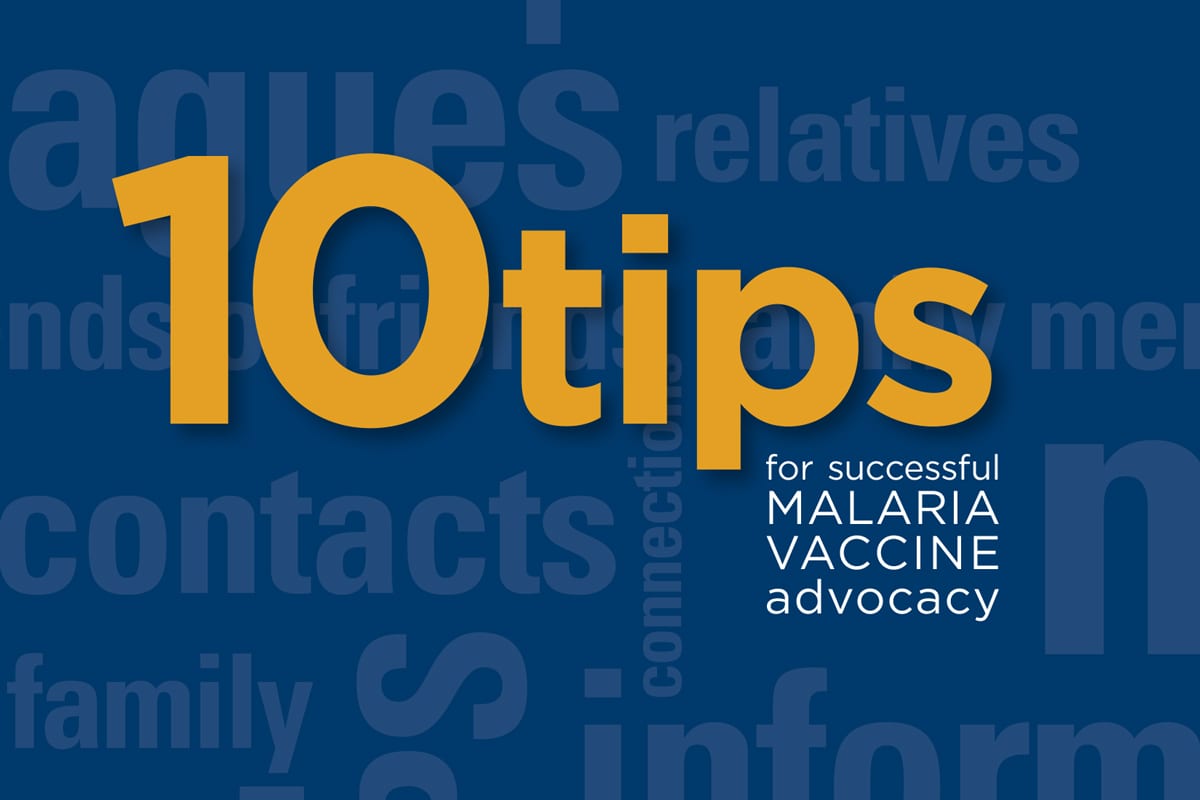10 Tips for Successful Malaria Vaccine Advocacy
By Katy Lenard, May 11, 2012

A child in Africa dies from malaria every 60 seconds. But today, we are closer than ever before to having the world’s first vaccine to combat this devastating disease. If all goes well in final testing, the World Health Organization has said it could recommend this vaccine as early as 2015.
Unfortunately, though, even once a vaccine is approved and available, it must get from the lab to the field, to those who really need it. That’s the challenge – many policymakers don’t have the information they need about a malaria vaccine to make necessary early decisions on its use. Any delay can result in a substantial lag between the availability of a vaccine and access to it.
A group of senior malaria vaccine researchers from all over Africa recently collaborated with the PATH Malaria Vaccine Initiative and Burness Communications to publish a guide of best practices called “10 tips for successful malaria vaccine advocacy.” The guide presents a set of success stories, examples of advocacy efforts, and tips like “build advocacy into your own work schedule” and “draw on your personal connections.” It also demonstrates that while simple actions—whether briefing policymakers, writing an opinion piece, or inserting a paragraph into a key speech—may seem to be small steps on their own, their collective impact can be significant over time.
The scientists were all participants in the 2011 Malaria Vaccine Advocacy Fellowship program. The program, which began in 2006, is a partnership between Burness Communications, the PATH Malaria Vaccine Initiative and the ExxonMobil Foundation. By working with malaria vaccine researchers and scientists in African countries, the program aims to foster a network of skilled scientist-advocates; bridge the worlds of science and policymaking; and help ensure that policymakers at national, regional and international levels have the information they need to make timely and informed decisions as soon as a first malaria vaccine becomes available for use.
Under the expert training of the Burness Institute, the Fellows hone their communication and advocacy skills, learn how the media works, and are introduced to the policymaking process. In small group settings, over the course of several days, the Fellows learn how to apply their research and clinical expertise to public discourse by interacting with journalists and policy experts.
Helping these scientists get their message from the lab to Parliament could mean the difference between a child dying from a preventable disease and a child receiving a vaccine that could save her life.
